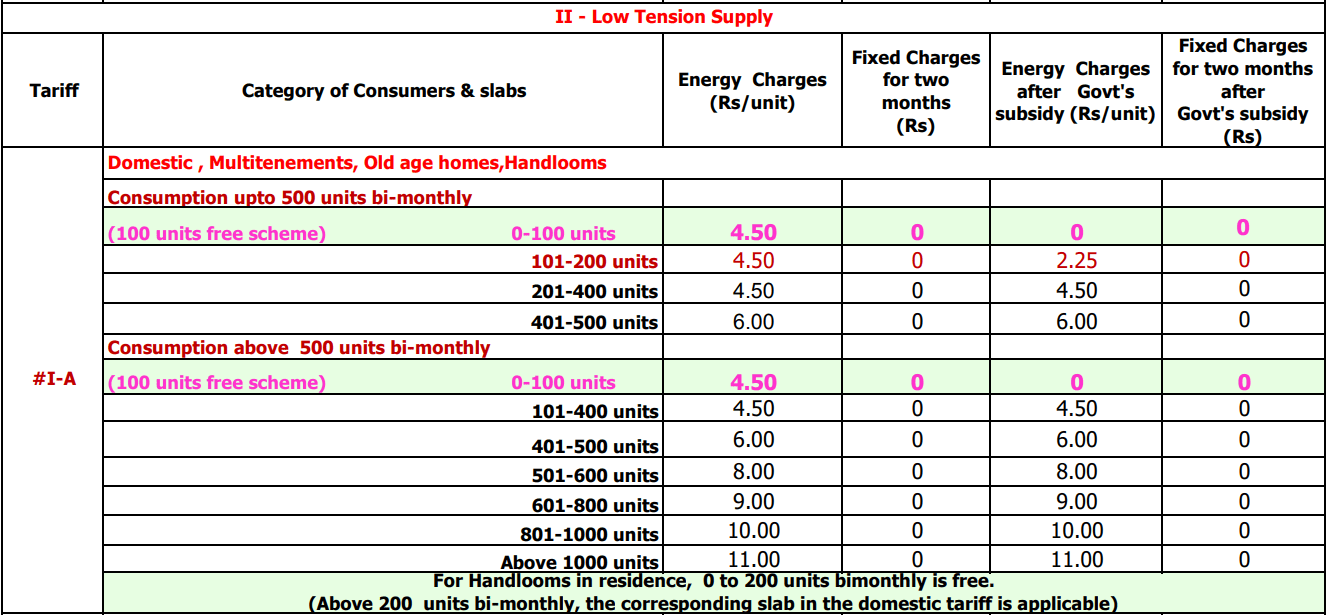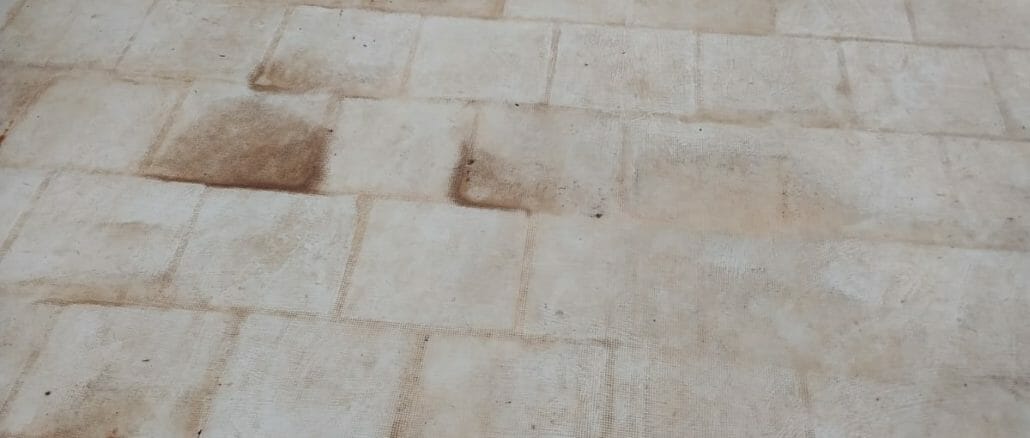Many Chennaiites are naturally anxious about what the revised electricity tariff would do to their EB bills. TANGEDCO raised the EB tariff on September 10, and the changes could mean the bi-monthly bill could see an increase by around 50%.
Here are some tips and tricks to help you use electricity judiciously in Chennai, making your homes energy-efficient and keeping power bills reasonable.
What is the hike in electricity tariff in Chennai?
Although the initial 100 units remain free, the base rate has increased from Rs. 2.50 to Rs. 4.50, for every 100 units, up to 400 units. For above 400 units and up to 500 units, the charges stand at Rs. 6. The rate rises by Re. 1 or Rs. 2 for every 100 units up to 1000 units, according to the revised electricity tariff.
Read more: Did your July electricity bill shock you? Here is why!
Architectural solutions to cool homes
“We need to consider the hot and humid climate of Chennai before proposing architectural solutions to reduce electricity dependency,” says Vinoth Kumar, a Chennai-based architect.
“Even if the temperature is 30 degrees C in Chennai, we feel the heat to a great extent. Therefore, people use ACs in enclosed spaces for prolonged periods of time, which adds to their power bills.”
We spoke to some experts who shared architectural solutions to reduce EB bills in Chennai.
- Cross-ventilation: Two opposite-faced windows brings in a fresh breeze from one window, and let the stale air exit via the opposite window. This will ensure incoming fresh air and natural ventilation, thus reducing the need for mechanical ventilation like fans.
- High ceiling with ventilators: Ventilators or large windows at the top of a high ceiling will help hot air to escape, due to its lower density. This will help colder air to stay at the bottom. “Hot air will exit via the ventilator, creating a vacuum, which promotes constant air circulation,” explains Vinoth. This will also reduce the burden to opt for artificial cooling systems in Chennai, thus decreasing electricity usage.
- Double-glazed glass: Many homes these days are using glass. They can install double-glazed (or paned) glass which insulates the home from the outside environment. “Gas fills the gaps between the panes [of double glazed windows]. This can optimise interior temperature without any artificial cooling or heating system,” says Nitin Mehta, Executive Director of ALCOI, a fenestration supplier.
- Avoiding windows in the west: “When the sun sets in the west, the rays become harsher,” says Vinoth, adding that it could heat up the interiors when there are windows in the west. “If the main rooms like bedrooms of the house are in the west, buffer those rooms with bathrooms so that the main rooms do not face the direct heat of the setting sun. Large windows, balconies and courtyards can be placed in the north because there will not be direct sun exposure via that direction.”
Read more: Summers are getting worse in Chennai. How can we build cooler homes?
“We have not used air-conditioner for more than three years, and we do not have the need to use one now,” says S Ganesh, a resident of Velachery. “Our terrace is filled with many potted plants. Moreover, we have given a white reflective coating on the roof, which reflects the sunlight. Also, we have a park close by, which regulates the heat in our neighbourhood.”
Energy-efficient appliances can help curb EB bills
You might have seen people switching on the television, but not watching it. If you are one of those people, having an LED TV makes you relatively safe from skyrocketing bills as a result of television use.
“LED TV might consume maximum 100 units, if you are watching 24/7 for two months,” says Bharath Ram, a researcher with Citizen consumer and civic Action Group (CAG), highlighting the energy efficiency of LED TV.
“Switching to energy-efficient appliances will save EB bills in Chennai, in the long run. For instance, instead of using CFL lights, one can opt for LED lights, which draws lesser electricity than the former,” says Bharath as not all appliances are as easy on the pocket as the TV.
Opting for newer models of pumps and geysers, which are more energy-efficient can help people save up on their EB bills too. “Older models of these appliances might have greater horsepower, which can cause very high power consumption,” says Bharath. “It even applies to ACs. 5-star AC is more energy efficient than 3 or 4-star AC.”
In other words, a one-ton 5-star AC consumes 554 Watts, while a one-ton 3-star AC consumes 747 Watts. According to studies, 5-star AC consumes 28% lesser electricity than a 3-star AC. Therefore, the higher the star rating, the better the energy efficiency.
“It (EB bill) depends on your use. If your bi-monthly bill is less, you can opt for a relatively inexpensive 4-star. However, if it is in thousands, then it is better to invest in a 5-star AC,” says Rohith Pallerla, CEO of Zodhya, which provides energy solutions to companies.
Although energy-efficient appliances may be more expensive, they do not draw a lot of electricity, thus helping people to save up on EB bills, say experts.
Mindful use of appliances
Getting to know the power consumption pattern of appliances will help you use them mindfully. Air conditioners, washing machines, geysers, and motor pumps among others contribute majorly to power bills.
Standby power loss can waste energy. “Electricity is spent even when the television set-top box, AC stabiliser and even the light in your fuse board are switched on, but the main appliance is not working,” says Bharath. “For instance, we switch off the TV with the remote, but we do not switch the main plug off. This also wastes electricity.”
According to a 2022 study by CAG done across the state, 70% of households they surveyed, did not switch off their appliances after use. Set-top boxes contributed majorly to the standby power loss, compared to television, sound system and air conditioner.
“Smart power strips can be fixed at the switchboards. This can automatically switch the main power of electronics when they are not in use, which can help to tackle the standby power loss. However, they are relatively high-end,” says Rohith.
Keeping in mind the limit of your appliances will also help you save energy. “Suppose your washing machine has a limit on the number of clothes you can wash at a time, adding lesser clothes than that is going to draw the same power as the maximum number of garments you can add,” says Bharath.
Maintaining the appliances can also reduce energy consumption. “Getting your AC or chimney filters cleaned, at least every three months, will help you save energy. If your AC is not clean, then for the amount of cooling, you will be setting it to lower temperatures, which will ultimately draw more power,” says Rohith.
Furthermore, refraining from using second-hand or very old appliances can save a lot of energy. “As the age of the appliance increases, they consume more power for the same function,” explains Rohith.
The EB tariff hike has also highlighted that it is a good time to shift to alternative sources of energy like solar, say experts.
These are some small ways in which Chennaiites can insulate themselves from receiving the shock of a massive EB bill.


Great tips for Chennai residents! Managing your electricity usage with simple steps can make a big difference in keeping bills low. Smart energy-saving choices are key.
A useful and localized guide offering practical tips to help Chennai residents manage their electricity bills effectively. Simple habits can lead to meaningful savings and a greener lifestyle. Highly relevant and easy to follow!